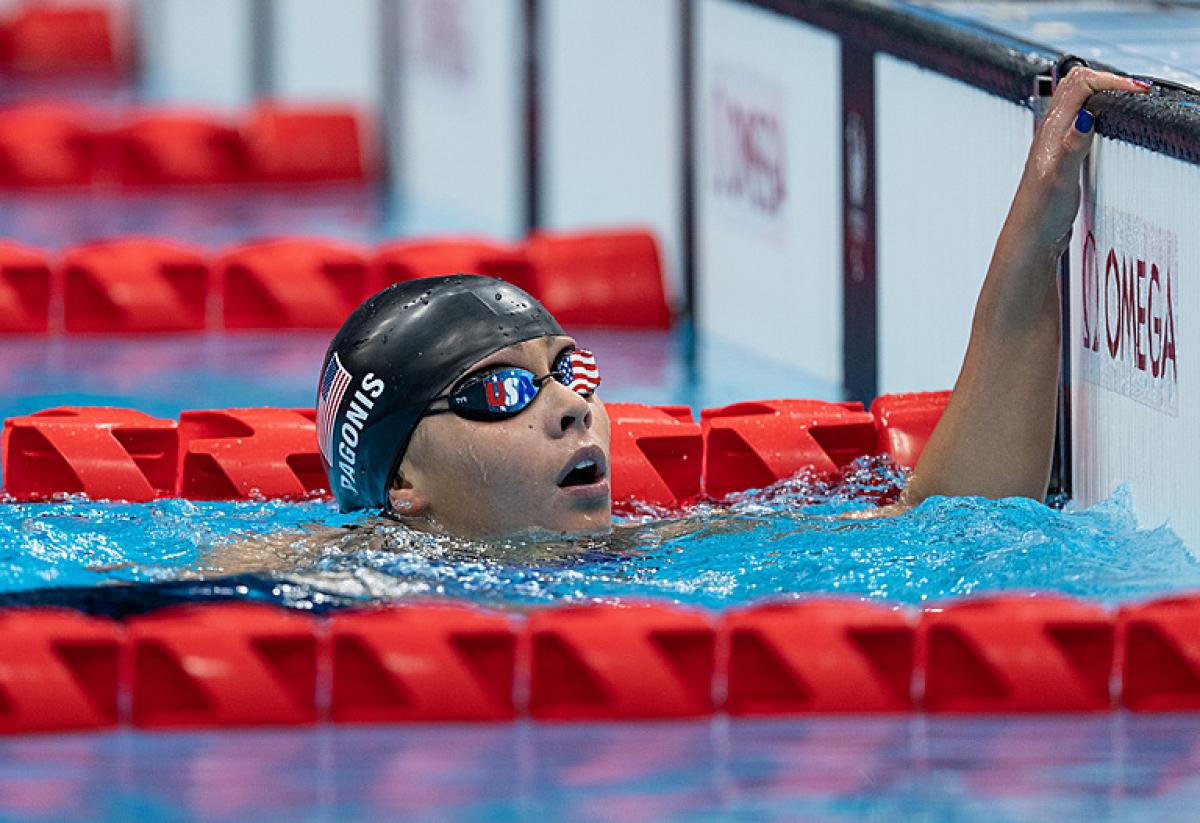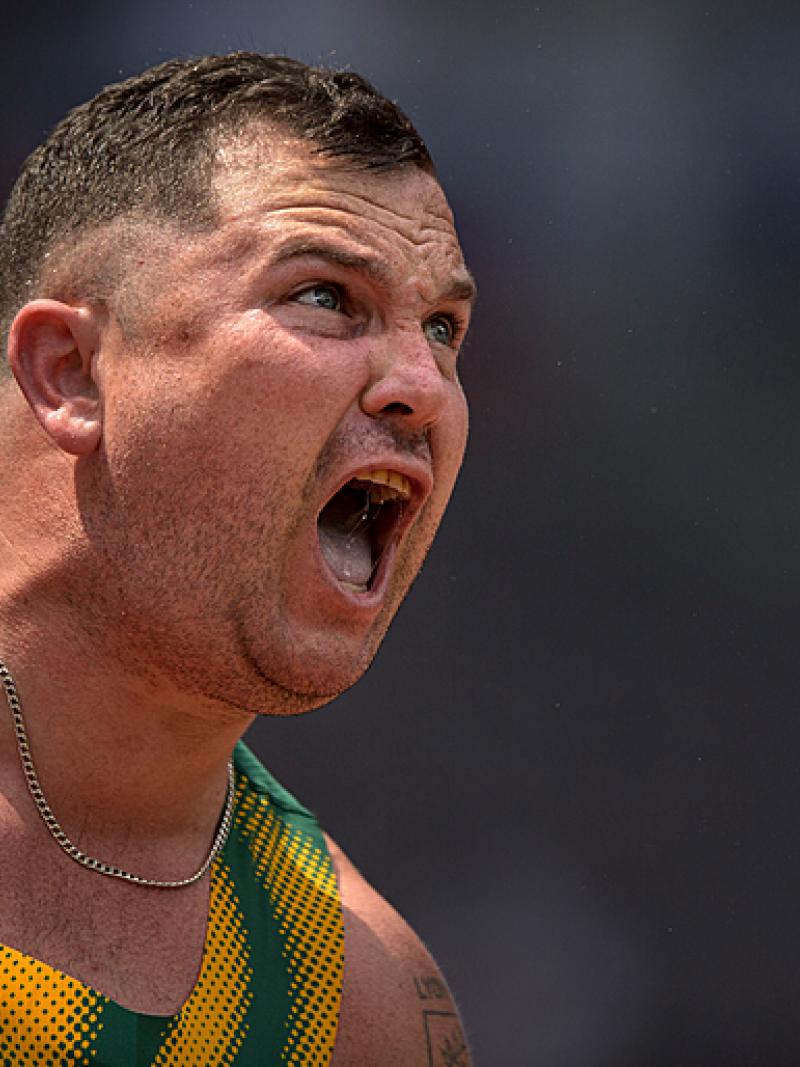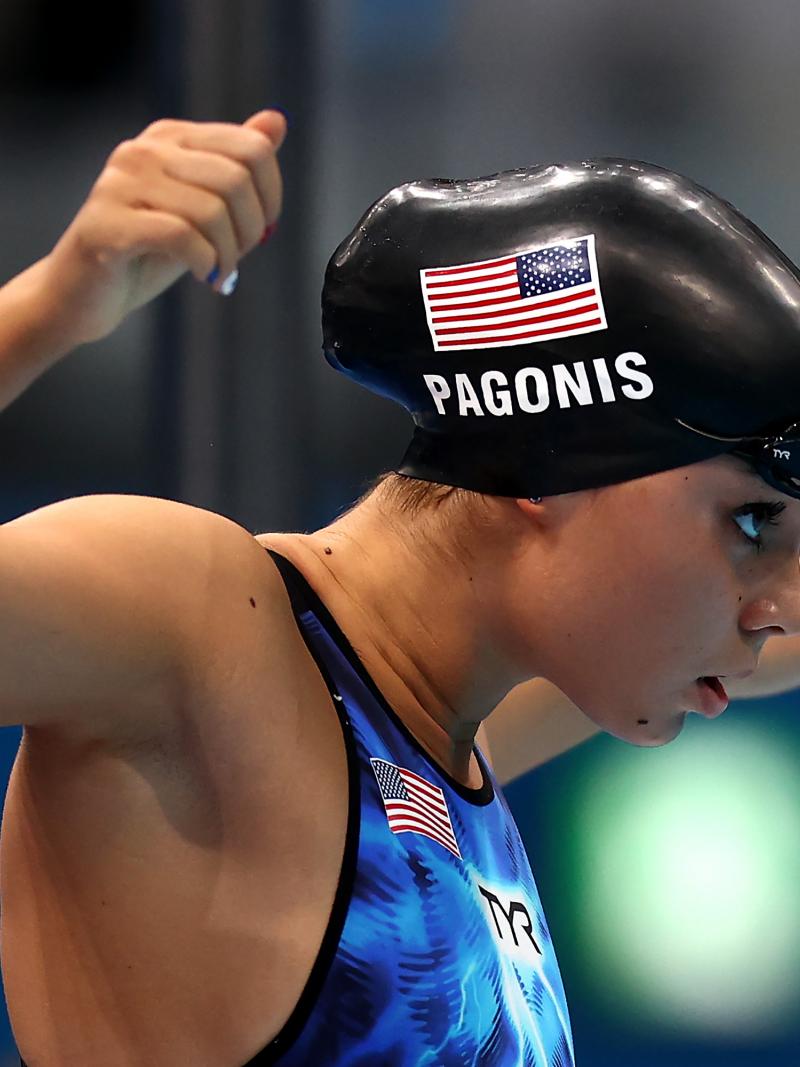Speaking up about mental health struggles is a sign of strength
Resources available for Tokyo 2020 Paralympic athletes, as well as peers 01 Sep 2021
The narrative of mental health is changing and seeking help is a sign of strength, not weakness.
That is the message Dr. Cheri Blauwet, a member of the International Paralympic Committee (IPC) Medical Committee, hopes athletes hear, especially in the midst of a high-stress environment at the Tokyo 2020 Paralympic Games.
“Mental health challenges are actually a normal part of the human experience and it doesn’t mean that there is something wrong with you, or that people are going to judge you,” Blauwet said. “In fact, if you do feel comfortable talking about it, it is a sign of strength because you are recognising it and you’re doing the things that you need to in order to improve the situation and seek help.”
Mental health appeared to trend more than ever during the Tokyo Olympics with high profile athletes such as US gymnast Simone Biles and Japanese tennis star Naomi Osaka opening up, as well as concerns of mental well-being rising during the COVID-19 pandemic.
Para athletes such as swimmer Anastasia Pagonis and javelin thrower Reinhardt Hamman have spoken up about the importance of mental health during Tokyo 2020.
But Blauwet said the issue has been “in the closet” for a long time, with fears of stigma and bias holding people back from speaking up.
“Unfortunately in the past when athletes felt uncomfortable talking about it, we could see the negative impacts,” she continued, “because if you’re really struggling and you can’t talk about it, then you don’t seek the help that you need.”
There is a difference between mental health symptoms and mental health disorders, Dr. Blauwet noted. Mental health symptoms are commonly experienced such as feeling down, anxious, having a change in appetite or loss of motivation. What bridges into mental health disorder is when those symptoms continue and become more severe to the extent that it impacts one’s function.
“A good example of a mental health symptom would be feeling a little down or depressed,” Blauwet said. “But if you become depressed to the extent that you can’t get up in the morning or you’re not performing at your job or sport, or you’re losing weight because of it, or withdrawing from your normal, healthy relationships, that is now likely to be a mental health disorder because you are experiencing the functional consequences of the symptoms.” Also, diagnosing a mental health disorder requires seeking the evaluation of a physician or certified mental health professional, who can evaluate your symptoms based on pre-established diagnostic criteria.
Resources are available to support athletes with such struggles, and again, Dr. Blauwet reminded that talking about mental health and seeking help is more powerful than not doing anything about it.
One of those resources, particularly for athletes during and after the Tokyo 2020 Paralympics is the Mentally Fit Helpline. It offers 24-hour mental health and well-being support, and importantly, is a confidential service. It is staffed by expert counsellors who can provide help, advice and support in over 70 languages.
There is also the basic service of talking to a medical professional, trusted friend or peer.
And the responsibility of ensuring positive mental health is shared – others have to also be aware and know how to provide support.
“I think the simplest thing is to reach out, ask someone how they are doing and encourage them to talk. Let them know that you are there for them,” Blauwet said. “If someone feels comfortable with you and has the trust to tell you that they are struggling, the most important thing is to listen, be non-judgemental and acknowledge their fears and concerns.”
It is important for peers such as teammates, coaches, organisations and federations to encourage those opening up to also get support, as most non-clinicians people are not trained in providing mental health support.
As part of the International Olympic Committee (IOC) Mental Health Working Group, Dr. Blauwet helped develop a tool for the general community called the “Sports Mental Health Recognition Tool”, that basically helps non-medical professions to identify mental health symptoms and disorders. There is also a Mental Health Training certificate programme
“We need to recognise that because of the delay of the Games and because of COVID-19, the stressors in athletes’ personal lives are at a very high level,” she said. “Athletes have had to defer or delay things like their job or their university education, or family decisions.
“It’s coming at athletes from all directions right now and we’re in a really challenging time, so it is even more important to ensure we’re providing resources that athletes need and giving them all of the tools they need to feel supported.”
 Facebook
Facebook
 Instagram
Instagram
 Twitter
Twitter
 Youtube
Youtube


